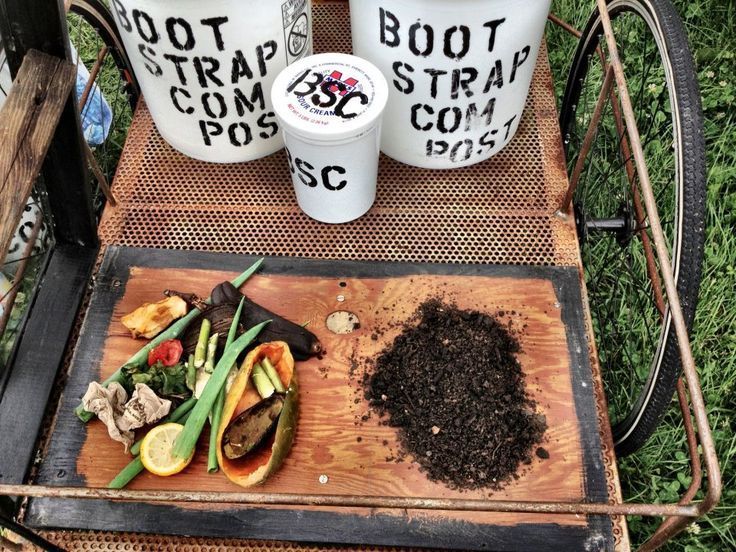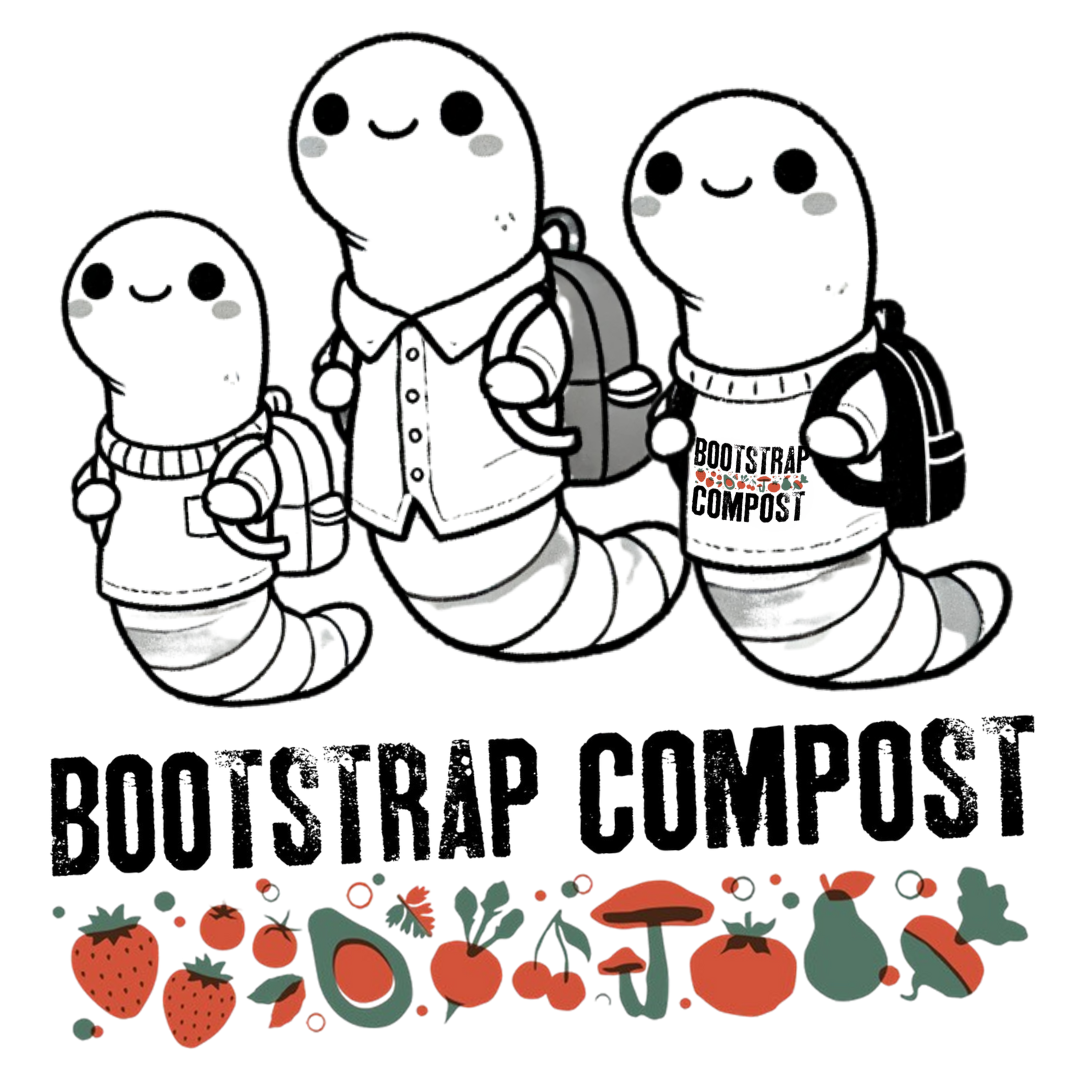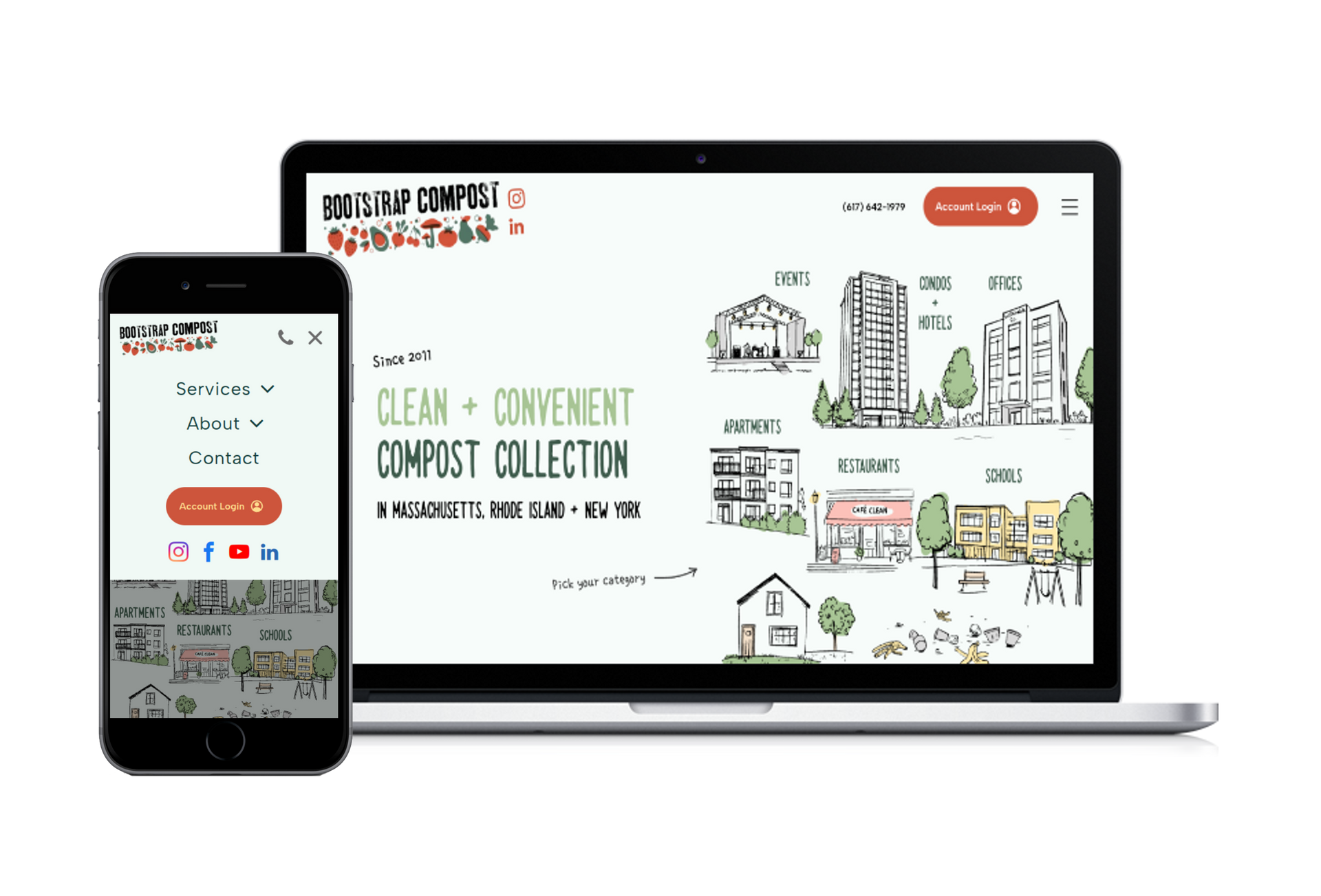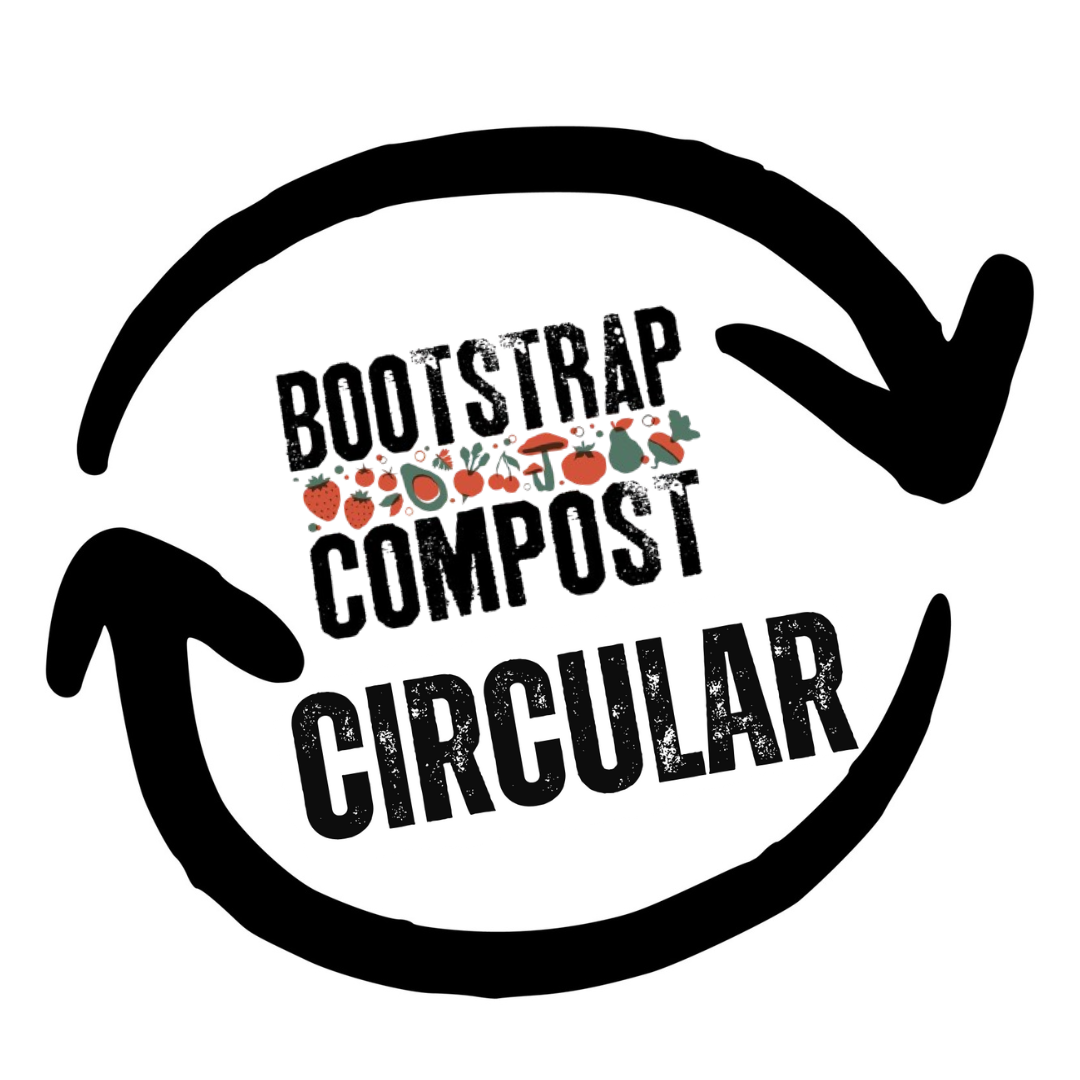
Composting 101 for Beginners: Everything You Need to Know
Did you know the average household throws away up to 30% of its food? That’s a lot of banana peels, coffee grounds, and leftovers headed straight for the landfill — where they release harmful methane gas. But here’s the good news: composting is one of the simplest ways you can make a real impact on climate change, right from your kitchen.
If the idea of composting feels overwhelming (messy, smelly, complicated), take a breath. We’ve got you. At Bootstrap Compost, we make composting clean and convenient for households, businesses, and schools all across New England. This guide breaks down the basics of composting so you can get started without the guesswork.
What is Composting?
At its core, composting is nature’s recycling system. Organic material — like food scraps, paper napkins, and yard waste — gets broken down by microbes and turned into a nutrient-rich soil amendment.
Think of it as closing the loop:
Food → Compost → Soil → Plants → Food.
Instead of tossing scraps into the trash, composting transforms them into something that enriches soil, grows stronger plants, and supports a healthier food system.
Why Compost?
- Good for the Planet: Food scraps in landfills create methane, a greenhouse gas 25x more powerful than CO₂. Composting keeps that waste out of landfills and cuts emissions.
- Good for Your Community: Bootstrap compost goes back into gardens, farms, and green spaces across the region. You’re literally helping grow food and flowers.
- Good for You: Bootstrap members can order a free allotment of finished compost to use on houseplants, garden beds, or lawns. Your food scraps come back to you as black gold between April and September.
What Can (and Can’t) Be Composted?
Here’s the short version:
✅
Yes, compost these: fruit & veggie scraps, eggshells, bread, pasta, grains, coffee grounds & filters, paper towels & napkins, nutshells, cut flowers. Untreated paper products, small pet bedding from hamsters or bunnies, pet food, pet hair, & natural fibers. Meat and dairy products are also acceptable in commercial composting methods.
❌
Skip these: plastic, glass, metal, rubber bands, twist ties, Styrofoam, & synthetic materials.
How to Start Composting With Bootstrap
- Sign up online. We’ll drop off a compost bucket at your door.
- Collect scraps. Fill your bucket with food waste throughout the week.
- Leave it out. Our team picks it up on a set schedule.
- We do the dirty work. We process your scraps into rich compost.
- Get compost back. Between April and September, you can order a share of the finished product.
That’s it. No backyard bin, no turning piles, no guesswork.
Tips for First-Time ComposterS
- Layer material. Adding shredded brown paper or egg cartons can absorb extra moisture and keep the bucket fresh between pick-ups.
- Stay cool. In summer, freeze scraps that might get smelly.
- Keep it covered. Keep the lid securely over the bin to keep odors in and pests out!
The Bootstrap Difference
Bootstrap isn’t just about hauling scraps. We’re building a movement:
- Serving
150+ schools and countless households across New England.
- Diverting
millions of pounds of food waste from landfills.
- Partnering with farms, nonprofits, and community gardens.
Every bucket you fill adds up to big change. And we’re here to make it clean, convenient, and community focused.
Ready to Start Composting?
You don’t have to be a zero-waste expert to make a difference. Composting is one of the easiest, most impactful choices you can make for the planet.
Join thousands of New Englanders already composting with Bootstrap.
Sign up today and we’ll deliver your first bucket right to your door.




